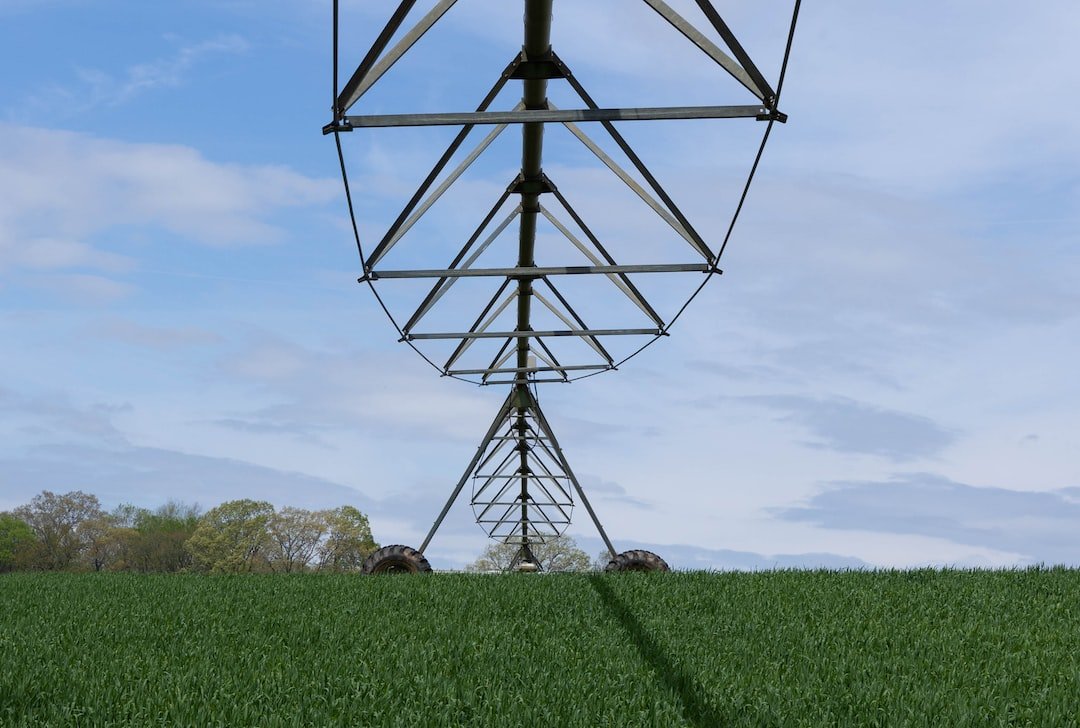Revolutionizing Agriculture: The Role of AI in Precision Farming
Category : AI in Agriculture | Sub Category : Precision Farming Posted on 2023-07-07 21:24:53

Revolutionizing Agriculture: The Role of AI in Precision Farming
Introduction:
Thanks to technology, agriculture has experienced a profound transformation. Artificial intelligence has become a game-changer in the farming industry. By enabling precise monitoring, analysis, and automation of various processes, the use of artificial intelligence is revolutionizing agriculture and paving the way for a more sustainable and efficient future. In this post, we will look at the concept of precision farming and its impact on agricultural practices.
1 Understanding the use of artificial intelligence in farming.
Machine learning and data analytic technologies are used in precision farming. Farmers can make data-driven decisions and improve their operations with it. Artificial intelligence can help farmers predict crop yields and detect pests and diseases.
2 Enhancing crop management is done.
Crop management is one area where precision farming shines. Farmers can use drones and satellites to monitor their crops. These tools use computer vision to identify and analyze crop stress, and other signs of pests and weeds. Farmers can take action with this information, such as applying targeted treatments and adjusting irrigation or fertilization rates, resulting in higher crop yields and minimized resource waste.
3 Resource utilization can be improved.
The use of precision farming has proved to be an effective way to maximize resource utilization. By analyzing data from soil moisture sensors, weather stations, and historical records, the Artificial Intelligence (ai) algorithms provide accurate and local irrigation recommendations. The precise dosage recommendations for pesticides can be determined by analyzing soil composition. Farmers can save money and reduce environmental impact by using less chemicals.
4 Decision support and predictive analytic support.
The ability to leverage decision support systems is another advantage of the technology. By analyzing historical and real-time data from various sources, the artificial intelligence can generate accurate predictions related to crop yields, market demand, and weather patterns. Farmers can make informed decisions regarding planting schedules, crop selection, and market strategies based on these insights.
5 Challenges and future outlook
There are challenges that need to be addressed in order to benefit from the benefits of precision farming. Farmers need access to reliable and affordable technology and proper training to use artificial intelligence effectively. Data privacy and security should be addressed to build trust. Investing in research and development, promoting partnerships between tech companies and farmers, and supporting education programs can help overcome these challenges and accelerate the adoption of artificial intelligence.
Conclusion
Farmers can achieve higher productivity, reduce resource waste, and make data-driven decisions with the help of the new precision farming technology. Artificial intelligence applications in farming are expected to get even more promising with technological advancement. We can ensure a sustainable and food secure future by embracing the use of precision farming.
Leave a Comment:
SEARCH
Recent News
- Are you interested in embarking on a thrilling journey from Zurich, Switzerland to France while exploring the fascinating world of artificial intelligence games? Strap in and get ready for a unique adventure that combines the beauty of travel with the excitement of cutting-edge technology!
- Zurich, Switzerland, is a picturesque city known for its stunning landscapes, rich history, and vibrant cultural scene. However, in a bizarre turn of events, a tragedy unfolded in Zurich that shook the entire nation. The incident involved a cutting-edge artificial intelligence system that was being used in a series of immersive virtual reality games.
- Are you interested in the fascinating intersection of artificial intelligence and gaming in the beautiful cities of Zurich, Switzerland, and Sweden? Let's dive into this exciting topic!
- Switzerland is renowned for its picturesque landscapes, luxurious watches, and delicious chocolates. However, the country is also making significant strides in the fields of artificial intelligence and game development. Two of its major cities, Zurich and Geneva, are at the forefront of these exciting advancements.
- **Exploring the Intersection of Artificial Intelligence and Gaming in Zurich and Frankfurt**
- Revolutionizing Education in Cameroon with Artificial Intelligence Games: A Case Study from Zurich, Switzerland
- **Exploring the Intersection of Artificial Intelligence and Gaming in Zurich, Switzerland and Brussels, Belgium**
- Exploring the Intersection of Artificial Intelligence in Games: A Perspective from Zurich, Switzerland and Bangladesh
READ MORE
1 year ago Category :

Are you interested in embarking on a thrilling journey from Zurich, Switzerland to France while exploring the fascinating world of artificial intelligence games? Strap in and get ready for a unique adventure that combines the beauty of travel with the excitement of cutting-edge technology!
Read More →1 year ago Category :

Zurich, Switzerland, is a picturesque city known for its stunning landscapes, rich history, and vibrant cultural scene. However, in a bizarre turn of events, a tragedy unfolded in Zurich that shook the entire nation. The incident involved a cutting-edge artificial intelligence system that was being used in a series of immersive virtual reality games.
Read More →1 year ago Category :

Are you interested in the fascinating intersection of artificial intelligence and gaming in the beautiful cities of Zurich, Switzerland, and Sweden? Let's dive into this exciting topic!
Read More →1 year ago Category :
